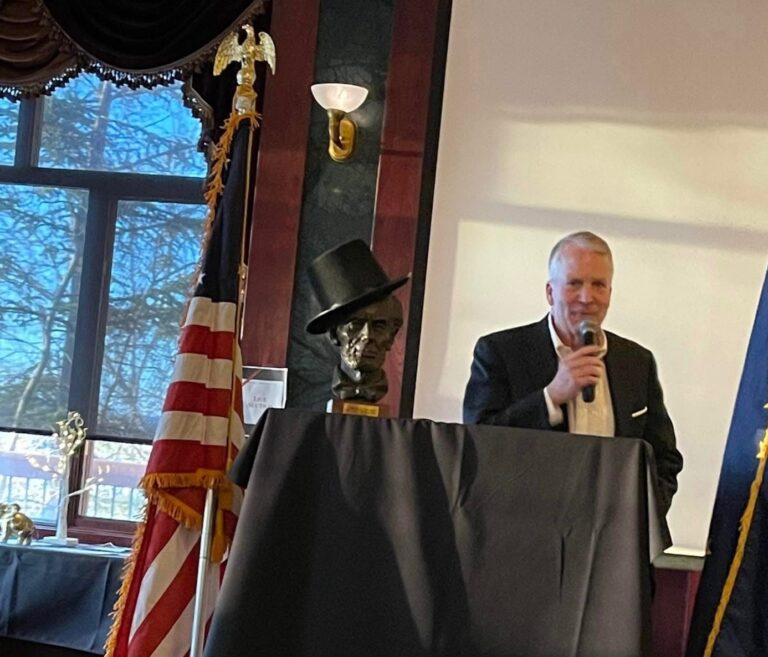By LINDA BOYLE
Maj. Brennan Schilperoort is a C-130J transport aircraft pilot stationed at Little Rock Air Force Base, a main training base for C-130 pilots.
He has served honorably for 17 years.
During the Covid years, he put in for a religious exemption from the Covid jab. The story at that time was that the Pentagon had denied all religious exemptions. Fortunately for Major Schilperoort, a federal judge in Ohio blocked the Air Force from taking administrative action against those who were requesting a religious exemption. That order was for only a two week period.
Major Schilperoort was to receive a very serious Letter of Reprimand during that same period. However, that did not happen due to the judge’s order.
In the interim because of Congressional involvement, the Pentagon had no choice but to repeal its Covid-19 vaccine mandate when that requirement was added to the 2023 National Defense Authorization Act. In doing so, the Pentagon warned such action could put service members at risk of serious illness.
The bad outcomes that the Pentagon predicted did not occur.
Major Schilperoort was pleased he had avoided the Letter of Reprimand for following his religious convictions. He had also been denied the ability to fly for over a year because the military was processing him for failing to take the Covid jab. With the mandate gone, he was ready to get back to flying again.
Then the other shoe dropped. Not long after this victory, he was asked what he thought about other immunizations to include the flu shot. With his renewed religious conviction, Maj. Schilperoort stated he could not take the flu shot either and put in for a religious exemption.
I don’t know if the military is actively ensuring all members take the flu shot or just waiting until herd immunity protection for the troops. I do know from one active duty friend that people in his unit had put in for religious exemptions and they were accepted.
It just seemed odd that shortly after the Covid jab debacle, Major Schilperoort would be asked about the flu shot. His command told him that his religious accommodation request would not be supported.
Major Schilperoort had previously asked for a medical exemption for the flu shot as he had had a severe reaction to it. When that was denied, he asked for religious accommodation.
Of interest, another military member of Space Command had received a medical exemption against the flu vaccine for getting “headaches” from it.
To make it worse, Maj. Schilperoort learned his command never processed his request for religious accommodation. He discovered this when he received a Letter of Reprimand for failure to follow a “lawful” order to get the flu shot.
R. Davis Younts is Major Schilperoort’s attorney. He is a retired Air Force Judge Advocate General officer. Younts contended it is hard to get a Letter of Reprimand for not following a “lawful” order when your request for religious accommodation was not processed.
Maj. Schilperoot has made multiple attempts to get assistance from the Air Force Inspector General, Military Equal Opportunity program, and members of Congress to no avail. “They ignored all of it”, he lamented.
Maj. Schilperoort met a discharge board in October because of the Letter of Reprimand. That board voted to discharge him. He is currently attempting to rebut their claims.
Major Schilperoot has appealed to the Secretary of the Air Force. He is waiting for a response, knowing that could take months before a decision is made.
In the interim, his command decided on March 19 ”to place him on a no-pay status until the discharge issue is resolved.”
Maj. Schilperoort shared, “I was given a notice of two and a half business days that my pay would be cut off.”
Maj. Schilperoort’s attorney, who has over 20 years’ experience in defending military members, stated this was an unprecedented decision.
“Other than individuals that are dangerous criminals or officers that are incarcerated, I cannot recall a case where a client has been put on Involuntary [Excess] Leave,” he said.
I don’t know if Maj. Schilperoort’s activism in notifying members of Congress for what he perceives was an illegal order to force Covid jabs on people had anything to do with the decision to go after him.
I do know that he and Lt. Col. Carolyn Rocco (a 20 year Air Force officer) have continued to fight against unlawfulness of the mandate. They spent thousands of dollars on shipping a book by Navy Cmdr. Robert A. Green, Jr. to over 120 members of Congress and nearly 200 top military commanders.They also included a copy of the Declaration of Military Accountability authored by Green.
Green’s book describes “the military COVID-19 vaccine mandate, and the resistance to that mandate by service members who could not, in good conscience, go along.” The Declaration of Military Accountability “pledges to hold military leaders accountable for the illegal conduct and harms caused by the DOD’s now-rescinded COVID-19 shot mandate.
The declaration was subsequently entered into the Congressional Record by Rep. Andy Biggs of Arizona.
Maybe it’s all a coincidence. Maj. Schilperoort couldn’t get a medical exemption from the flu shot for his severe reaction to it whereas another officer could for his reaction (headaches).
Maj. Schilperoort’s command didn’t even forward his request for a religious accommodation exception when I know of others who had theirs appropriately processed and their requests granted.
Or maybe the title of the title of the article in Gateway Pundit summed it up correctly:
‘Motivated by a Desire to Punish,’ Active-Duty Air Force Major is Being Forced to Go Without Pay ‘Indefinitely’ for Taking a Religious and Medical Objection to the Flu Vaccine.
I pray he is successful in getting his life back, even if it’s just for his family and his integrity. But also for the country.
Linda Boyle, RN, MSN, DM, was formerly the chief nurse for the 3rd Medical Group, JBER, and was the interim director of the Alaska VA. Most recently, she served as Director for Central Alabama VA Healthcare System. She is the director of the Alaska Covid Alliance/Alaskans 4 Personal Freedom.








